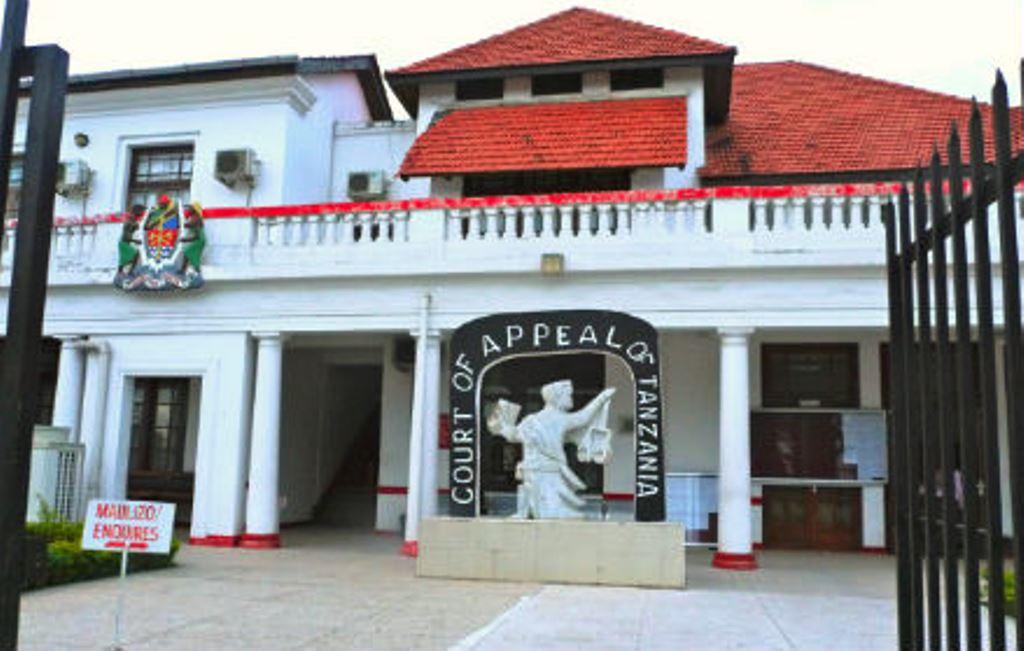Africa-Press – Tanzania. THE Court of Appeal has rejected an appeal lodged by the Tanzania Telecommunications Company Limited (TTCL) to oppose payments of 100m/- in damages to a civilian, Mr Stanley Mwabulambo for initiating false imprisonment and defamation claims.
Justices Gerald Ndika, Mwanaisha Kwariko and Barkey Sahel ruled against TTCL, the appellant, after allowing one ground of objection raised by Mr Mwabulambo, the respondent with effect that the appeal in question was time barred.
“This appeal which was filed on February 1, 2017 was time barred thus incompetent before the Court. In the event, we sustain the preliminary objection and proceed to strike out the appeal for being incompetent.
The respondent shall have his costs,” they ruled. During the hearing session, the counsel for the respondent had submitted that the appeal by the appellant to oppose the payments was time barred for having a defective certificate of delay.
The certificate of delay is a crucial document issued by the Registrar to exclude the period required for preparation and delivery of the certified copies of the judgment, decree and proceedings before lodging the appeal in time.
The justices pointed out that, according to Rule 90 (1) of the Court of Appeal Rules, the appellant is obliged to file an appeal within 60 days from the time of the filing of the notice of appeal.
However, they said, where he has applied for a copy of judgment and proceedings from the Registrar of the High Court within 60 days from the date of the impugned decision and served a copy of that letter on the respondent, the Registrar may issue the certificate of delay.
In the instant case, the justices observed that the impugned decision was handed down on May 10, 2013 and the notice of appeal was lodged on May 17, 2013 and, thus, under normal course of things the appellant ought to have lodged her appeal within 60 days from that date.
However, they said, as the appellant needed a copy of the impugned judgment and proceedings in the High Court to include in the record of appeal, she applied for the same on May 7, 2013 and served the letter on the respondent’s counsel on May 21, 2013.
According to the justices, the appellant was expected to lodge the appeal upon being supplied with the copy of proceedings and the record shows that on October 11, 2016 the Registrar wrote to the appellant that the documents were ready for collection.
They noted further that the certificate of delay excluded the days from May 17, 2013 when the appellant applied for and December 13, when she collected the copy of proceedings.
With the foregoing backdrop, the respondent had argued that the certificate of delay is defective since it mentioned December 13, 2016 as the date the appellant was supplied with the copy of proceedings but not borne out of the record.
This is because, he submitted, the date upon which the Registrar informed the appellant that the documents were ready for collection is October 11, 2016, hence it is the one upon which the time limit to lodge the appeal ought to start counting,” they said.
In their ruling, the justices were of the view that an erroneous certificate of delay could not be relied upon by the appellant in computation of the time within which to lodge the appeal.
“Since the certificate of delay has been ruled out to be defective, it cannot be relied upon by the appellant in computation of the time within which to lodge the appeal.
The appellant was thus required to lodge the appeal within 60 days from May 17, 2013 when he filed the notice of appeal,” they said.
The respondent won a suit against the appellant for general and exemplary damages arising out of false imprisonment and defamation.
At the trial, it was alleged that the appellant had falsely reported to the Police that the respondent and others had sent written threats to kill one Nigel Williams, an official of the appellant.
The said report led to the arrest of respondents and incarceration in Police custody for some days. The appellant refuted the claims and maintained that the complaint was made by the said Nigel Williams on his own volition.
At the end of trial, the High Court found the complaint to the police was actually made by the appellant’s management and was not justified, thus liable for damages.
In its decision, the court awarded the respondent general damages to a tune of 90m/- with interest at 7 percent per annum from the date of judgment and exemplary or punitive damages at a tune of 10m/-.
Aggrieved by that decision, the appellant lodged a notice of appeal to the Court of Appeal.







